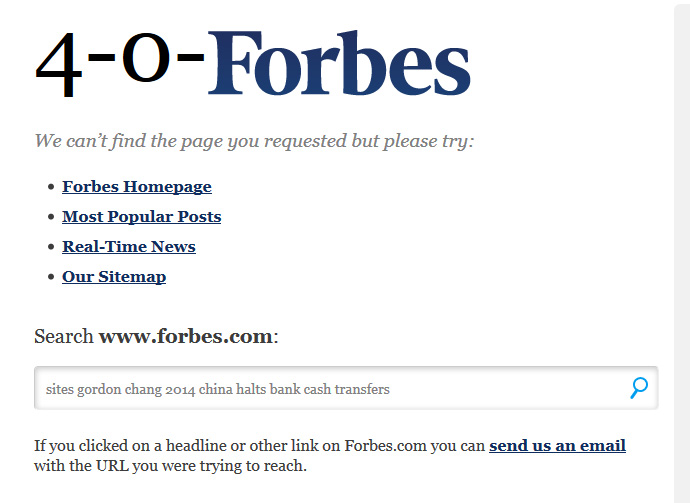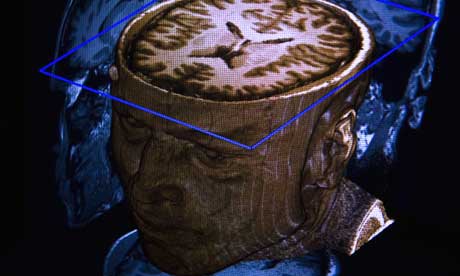– Forbes Pulls Down China Hoax Story; Even As Dennis Gartman Is Completely Fooled (ZeroHedge, Jan 27, 2013):
Earlier, we debunked an alarmist Forbes story about halted cash transfer by PBOC decree, which was erroneous along various lines all explained previously, not in the least that the actual announcement had first appeared some three weeks ago. And despite the kneejerk reaction of some of our more fatalist readers and not to mention the general public, the reality is that China has more than enough real problems (Trust Equals Gold being at the forefront) and certainly does not need to add imaginary, made up ones, conceived only with the intention of generating conflated ad revenues through click-baiting headlines. Which is why we commend Forbes for, better late than never, pulling the story even without providing an explanation of how this story appeared in the first place. Because where the article once was, there is only a 4-0-Forbes now:
Perhaps it is not too late for Forbes to salvage some credibility.
Read moreForbes Pulls Down China Hoax Story; Even As Dennis Gartman Is Completely Fooled


